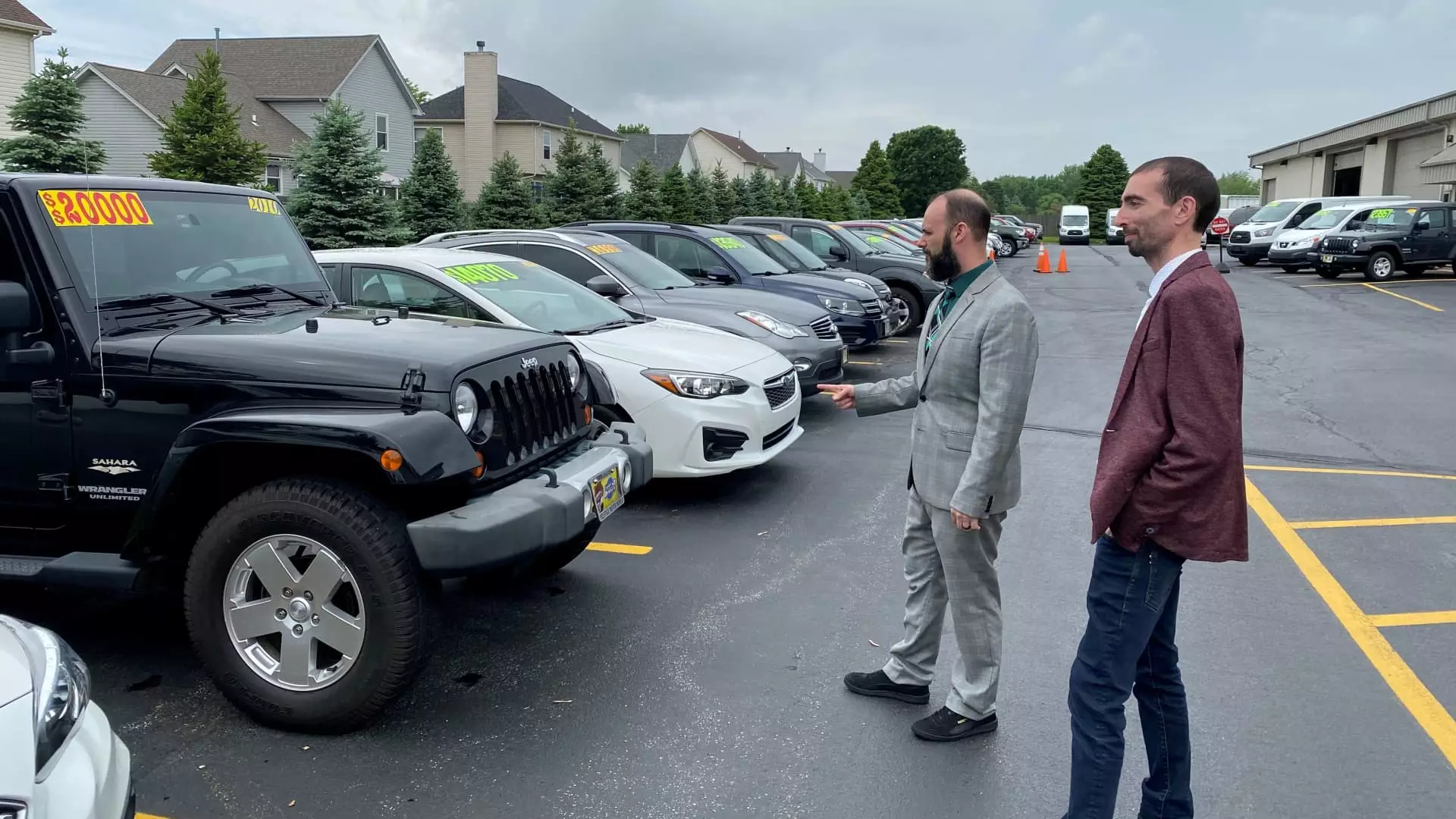The automotive industry in the U.S. has entered a transformative period marked by shifting consumer preferences, fluctuating economic indicators, and pivotal political dynamics. While recent surveys indicate a notable increase in optimism among car dealers, mixed sentiments concerning electric vehicle (EV) sales underscore the complexities of the market. A comprehensive analysis reveals how these factors are shaping the future of the automotive landscape as we move toward 2025.
Recent findings from Cox Automotive’s “Q4 2024 Dealer Sentiment Index” highlight a striking surge in confidence among dealers. With a score of 54, this index suggests that many within the industry foresee improved sales conditions in the near future, a sharp increase from the previous quarter’s score of 42. Just a year prior, the sentiment index had dipped to a concerning 41, illustrating a challenging climate for auto retailers. Despite these positive indicators, one must examine the underlying economic factors that have contributed to this newfound optimism, including trends in interest rates and the promise of incentives from automakers.
The U.S. economy is witnessing a gradual recovery, and interest rates appear to be stabilizing. For car dealers, these developments translate into favorable conditions for facilitating sales. Low-interest financing options can significantly enhance affordability for consumers, inspiring confidence in car dealerships. As observed, a majority of dealers have noted that the pricing of vehicles—both new and used—remains elevated, presenting lucrative opportunities for sales. This financial stability has undoubtedly fueled a sense of hope among automotive retailers as we approach 2025.
Despite the broader optimism within the dealer community, sentiments regarding the sale of electric vehicles tell a different story. The same report uncovers a worrying trend: a majority of dealers anticipate declines in EV sales in the upcoming quarter. This cautious outlook stems from concerns that potential policy shifts under the incoming Trump administration could negate existing federal support for the electric vehicle market. Currently, federal tax credits of up to $7,500 incentivize consumers to purchase EVs, bolstering demand. However, uncertainty looms over whether these credits will remain intact, with predictions that the new administration may relax fuel and emission regulations.
This looming change raises significant questions about the viability of electric vehicle sales in the near future. As the market currently stands, the success of the EV segment relies heavily on government policies geared towards promoting cleaner vehicle options. Should these incentives dwindle, the fragile state of EV sales may be exacerbated, leading to diminished investment from automakers. As noted by Cox Chief Economist Jonathan Smoke, the potential rollback of tax credits may directly correlate with a bleak forecast for both new and used electric vehicle markets.
The political landscape remains a pivotal player in shaping business outcomes for U.S. dealers. A survey conducted after the recent presidential election revealed a noticeable decline in the percentage of dealers concerned about political factors impacting their businesses—dropping from 44% to 35%. This shift reflects a growing sense of resolve as dealers feel the weight of uncertainty lift in the wake of electoral clarity, allowing for a more focused approach to their operations.
However, the foundation of this optimism should not overshadow the fundamental challenges still present in the automotive sector. The market index score of 42 is indicative that many dealers still perceive weakness in current retail conditions. While there is an upward trend in sentiment, it remains essential for industry players to adapt to lingering influences from past market disruptions.
The stock performance of publicly traded automotive retailers illustrates the mixed nature of market receptivity. Major players like AutoNation, Lithia Motors, Sonic Automotive, and Group 1 Automotive have experienced significant gains this year, with increases ranging from 15% to an impressive 40%. This performance signals investor confidence largely driven by high pricing of vehicles across segments.
Yet, without sustained demand—especially in the burgeoning EV market—these gains could falter. As the U.S. transitions into 2025, a critical balance between optimism for traditional vehicle sales and caution about the evolving ecosystem for electric vehicles must be carefully navigated by dealers.
The landscape for U.S. auto dealers reflects a tapestry of intertwined optimism and uncertainty. While advancements in economic conditions and improved dealership sentiment provide a hopeful preview, the complexities of EV sustainability and evolving federal policies demand attention. The road ahead for automotive dealers will be one of vigilance, adaptability, and strategic decision-making as they chart their futures amid an ever-changing marketplace.


Leave a Reply